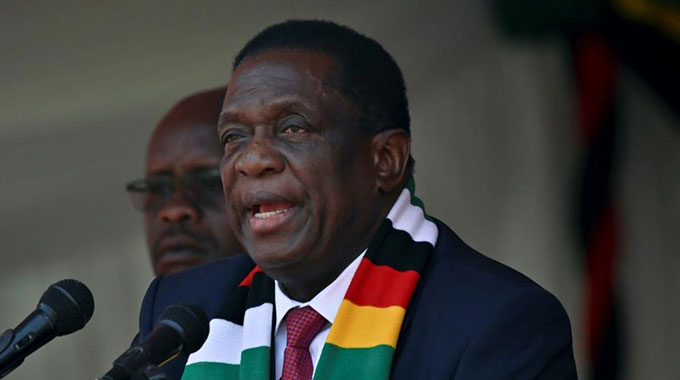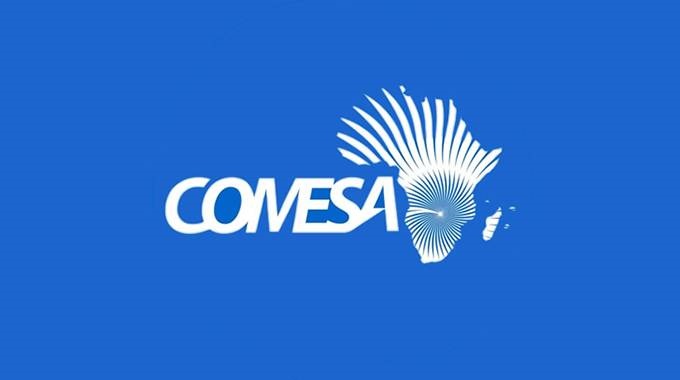EDITORIAL COMMENT: New Government policies must move West into normalising ties

President Mnangagwa met a top British diplomat on Wednesday in Harare, a development that highlights a growing rapprochement between Zimbabwe and Britain after years of mutual hostility between the two countries.
Britain’s Foreign and Commonwealth Office official responsible for Africa, Mrs Harriet Matthews, delivered a special message from British Prime Minister Boris Johnson to the President. Speaking to journalists after the meeting, Mrs Matthews said she was here to assess progress on reforms through interacting with the Government, the opposition and civil society.
Her visit is a continuation of a conversation that started between Harare and London soon after President Mnangagwa assumed office in November 2017. Since then, Britain has sent a number of envoys to Zimbabwe. Mr Rory Stewart, then British Minister for Africa, was the first top London official to visit Zimbabwe in decades after he met President Mnangagwa a few hours after his inauguration on November 24, 2017. He was followed by Mr Simon Gerard McDonald, who is Permanent Under-Secretary at the Foreign and Commonwealth Office and Head of the Diplomatic Service, while the then Minister for Africa and Commonwealth Office and Department for International Development, Ms Harriet Baldwin also visited last year.
On the other hand, Zimbabwe has also sent a number of diplomats to Britain, the most senior being Minister of Foreign Affairs and International Trade, Dr Sibusiso Moyo, in July.
We acknowledge that diplomacy is a step-by-step process which takes time and whose results are sometimes imperceptible to some. However, we note the progress in the Harare-London re-engagement process, hopeful that in the not-so-distant future relations would be restored to the cordiality they were at before 2000.
Zimbabwe and the United Kingdom have an old relationship. For the most part, it was painful for Zimbabwe as a British colony. We remember the brutality with which colonial Britain misruled Zimbabwe; the forced removals of blacks from their ancestral lands; the extortionate taxes and draconian laws wrought on our country and how these and more factors led the masses to wage a liberation struggle to free themselves from these injustices. It was painful indeed, but, as the President always says, it’s no use dwelling in the past; we have to move on.
We, thus, are delighted to see the likes of Mrs Matthews visiting our country, meeting the President, the opposition and civil society to reinvigorate the relations between Harare and London.
“The two of us have come here for a number of reasons: first of all, the UK government and the Prime Minister are following what is happening in Zimbabwe, so we are going back to tell (him) what we have seen on the political front, the economic front and the humanitarian front,” we quoted Mrs Matthews as saying yesterday.
“So the first thing, I think is a call for a step up in reforms, in particular the human rights and on corruption. The second thing is to stress that the UK is a very close friend of Zimbabwe and the Zimbabwe people and we want the country to succeed . . .”
Foreign Affairs and International Trade Secretary Ambassador James Manzou stressed the importance of Mrs Matthews’ visit.
“Mrs Harriet Matthews is one among a number of envoys that have come to Zimbabwe since we started the re-engagement process and it is an indication of the continued re-engagement between Zimbabwe and the UK and such re-engagement is important for both sides to understand one another, and so we value this special visit,” he said.
We hope that Mrs Matthews has seen for herself the situation on the ground and efforts by the Government to implement reforms on a wide range of areas.
Among the positive developments is the intensifying campaign against corruption which saw the appointment of a new Zimbabwe Anti-Corruption Commission (Zacc) and the strengthening of the body early this year. Immediately after this, Zacc got down to business and over the past 10 months it has arrested a number of high-profile suspects and is investigating up to 44 senior government officials for alleged corruption. Dozens of junior government officials have been arrested too for alleged corrupt activities. These developments on the anti-corruption front must be a firm response to Britain’s concerns on how the Government is tackling the vice.
In addition to the anti-corruption agenda, many reform initiatives are at different stages at Cabinet level and in Parliament. Among them are investment laws that are being modernised and relaxed as the Government works to attract more capital to boost economic recovery efforts. To that end, the Zimbabwe Investment and Development Agency (Zida) Bill, gazetted on April 5, 2019, is likely to be debated in Parliament in the current, second session of the Ninth Parliament. The same applies to the Freedom of Information and Zimbabwe Media Commission Bills. Security laws are being looked into also with a view to removing some provisions that stifled freedoms and human rights.
Indeed, the Government is doing commendably well on the various reforms, but all of them cannot be achieved overnight. These efforts must be recognised not only by Britain, but also the United States and Europe resulting in the normalisation of relations between Harare and the West.











Comments